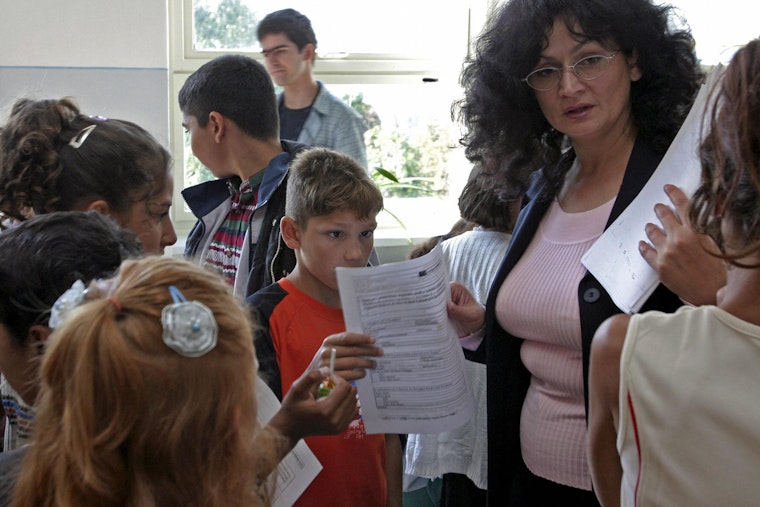Why Roma Integration Is a Rare Opportunity for the Western Balkans and Turkey
By Zeljko Jovanovic

This week, a new initiative promising to improve the situation for Roma in the Western Balkans and Turkey will be launched in Brussels. Coming on the heels of the Decade for Roma Inclusion, Roma Integration 2020 will build on the lessons learned from the decade in supporting national governments in closing the gap between Roma and non-Roma.
Unlike in the decade, the European Commission will be at the forefront of the effort, sharing the cost with the Open Society Foundations, which initiated the decade. However, a major lesson we learned is that international pressure alone, even if it comes from the European Union during the accession process, cannot be a vehicle of change in the lives of Roma.
The decade has revealed that the international appearance of progress can conceal devastating regression at home. National governments adopted strategies and action plans in the framework of the decade as a way to demonstrate fulfillment of EU accession criteria. Once Hungary, Slovakia, Romania, and others were granted membership in the EU, however, these strategies quickly fell by the wayside.
Moreover, when the financial crisis hit in 2008, a backlash ensued against governments and European institutions that had publicly committed to do more “for Roma.” Opportunistic politicians quickly realized the potential of empty slogans like “Gypsy criminality” and “Roma privilege” to gain quick and cheap votes; others felt they risked losing votes if they did anything positive for Roma.
In the past 10 years, we have seen Roma bombed by neo-Nazi terrorists in the Czech Republic, murdered by right-wing terrorists in Hungary, and forcibly removed from homes in France, Bulgaria, and Italy. Therefore, the European Commission cannot really present member states as a standard against which it can assess progress the candidates make on the situation for Roma.
The European Commission’s role in the new initiative can make a difference if it mobilizes domestic political and institutional forces that can translate international political promises into the everyday work of doctors, teachers, employment officers, and urban planners. EU strategies and EU-funded projects isolated from the work of regular civil servants cannot do this job.
In the framework of the Roma Decade, governments proudly reported that they employed Roma mediators in health institutions and schools, many of them funded by EU money in one way or another. Many of these mediators probably do some useful work. But this is no substitute for quality health care and education for Roma citizens.
More concretely, if a non-Roma child does not go to school, its teacher will ask the family about the absence. But if a Roma pupil is not present in school, the teacher will leave the issue to the Roma mediator to investigate. If a mayor is asked by Roma citizens to introduce drinking water in a Roma settlement, he will tell them to look for EU funds to solve the problem, while in non-Roma neighborhoods, the introduction of drinking water would be paid for from the local or national budget.
There are notable exceptions, yes, and we should acknowledge them. But they are simply too few.
We know Roma do not face different problems than other citizens. But unemployment, inadequate education, unsafe streets, and poor quality health care affect the Roma in a much higher degree than non-Roma. This gap in negative consequences is not a result of “cultural difference” but politically reinforced anti-Roma prejudice in public institutions. Therefore, the response to this situation must be found right there: in the domestic political process and civil service.
I hope the new initiative will mobilize courage among politicians and civil servants who believe that treating Roma as full citizens—not only on paper, but de facto—is a matter of duty, not international pressure or funds. There are some who are open and willing, but they may feel isolated and ignored by their own colleagues who do not have the courage to counteract the popular backlash.
Roma Integration 2020 should provide an opportunity for these kinds of public officials who are not in charge of Roma, but of policy reforms and public budgeting. They, together with their colleagues in charge of Roma issues and civil society advocates, will have the space and support to find ways that schools, hospitals, and employment agencies can provide service to Roma as they do for other citizens.
After the Roma Integration 2020 launch event in Brussels ends, a rare opportunity for the Western Balkan countries and Turkey begins. As in no other area, they can show that EU candidates can do better than EU member states when it comes to Roma. In the coming years, we shall see if the politicians and civil servants of these countries have the leadership, courage, and sense of duty to prove it.

Until February 2024, Zeljko Jovanovic was director of the Roma Initiatives Office.


